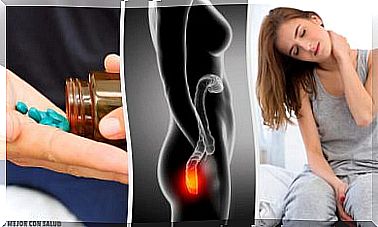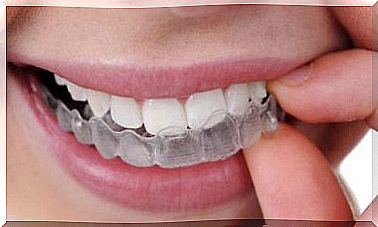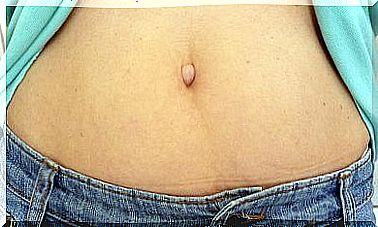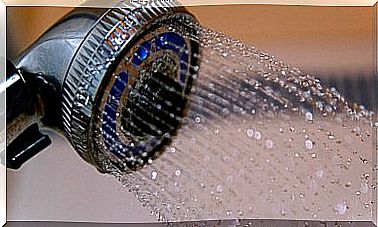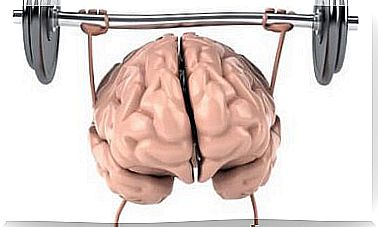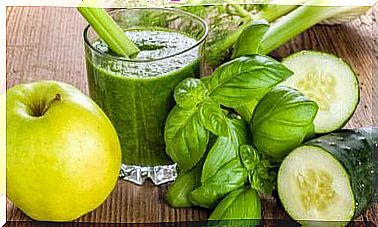Aerophagia: Causes And Treatments
In children, aerophagia is quite common and is often associated with infantile colic.

Aerophagia is a physiological phenomenon produced by excessive ingestion of air in the digestive tract, especially during meals. From a literary point of view, the term means “to eat air”. It is a minor digestive disorder, but one that causes significant discomfort.
In general, it is responsible for the exit of air through the mouth, commonly known as belching. However, it should not be confused with gastroesophageal reflux disease, which has similar symptoms.
Aerophagia can worsen in the presence of other pathologies, such as dyspepsia, or bloating in the stomach. In children, aerophagia is relatively common and often linked to infant colic.
The causes of aerophagia
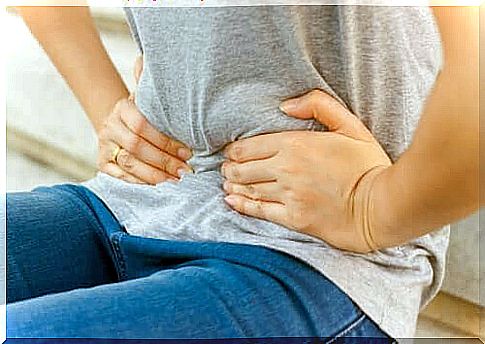
Aerophagia is normally the result of an inadequate diet. It is often linked to excessive consumption of carbonated and sugary drinks or certain foods. For example, sweets, frying or chewing gum.
In addition, it can also be the consequence of bad habits during meals, such as eating too fast. This promotes the entry of a large amount of air into the digestive tract.
Aerophagia can also occur due to anxiety issues, such as stress. From a pathological point of view, it is common in people who do not correctly coordinate the functions of swallowing and breathing. This often happens in people with mental illnesses.
Symptoms
Aerophagia is manifested by a feeling of heaviness in the stomach, bloating and digestive disorders. Burping, along with gas, is a way of relieving the discomfort of digestion.
Among the symptoms of aerophagia are:
- Abdominal distension: caused by gas pressure. Indeed, the excess air causes the abdomen to swell but this can be confused with other symptoms.
- Abdominal Pain: Sometimes the pain travels down the breastbone when air is compressed in both the stomach and the heart. This pain can also be confused with angina pectoris.
- Bowel sounds: some conditions produce the symptoms of aerophagia. This is the case with gases which also cause noises in the intestine.
- Odorless eructations and meteorisms
What is the diagnosis?
A diagnosis can be made when belching is repetitive and bothersome. At least several times a week. On the other hand, we control the amount of air ingested.
The fundamental objective of this diagnosis is to rule out organic pathologies such as diseases of the upper digestive tract, carbohydrate malabsorption , bacterial proliferation and alterations in motility, among others.
Prevention of aerophagia
In order to prevent aerophagia, it is best to maintain an adequate diet, chew slowly, and avoid certain foods that promote inflammation. This is the case with soft drinks, sweets and chewing gum, among others of course.
If the bloating is due to stress, one should try to relieve the anxiety with the appropriate treatment. Or make it decrease by playing sports regularly and resorting to relaxation methods. Symptoms of aerophagia tend to go away naturally once the causes responsible for the disorder are addressed.
Treatment of aerophagia

The treatment includes various measures to be taken into account:
- Chew well and slowly: Many people overeat, eat poorly and quickly. This leads to problems with weight gain and also poor digestion. Therefore, one of the things you can do to avoid this discomfort and treat aerophagia is to eat and chew food more slowly.
- Avoid large meals: a healthy diet helps prevent aerophagia. It is not recommended to take large , very spicy meals and to consume carbonated drinks
- Relax: Some people hold their nerves in their stomachs. In this case, it is necessary to release stress by leading a healthier life in general. For this, it is excellent to exercise regularly and eat more fruits, fish and vegetables.
- Take chamomile and other natural remedies: Certain natural products can relieve various symptoms of aerophagia. Chamomile is the perfect natural remedy for treating and relieving gas
- Drink water: this allows better hydration. In addition, drinking water avoids the ingestion of carbonated drinks that are not recommended.
Finally, having an abdominal massage can help relieve this digestive system disorder that can be so annoying at times.
